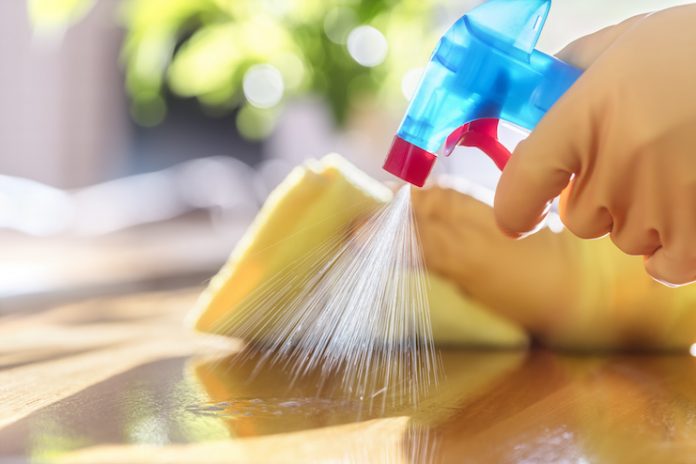
The impact of COVID-19 has been felt across every segment of the travel industry and as businesses have rapidly pivoted into crisis response mode, the pandemic has brought to light the imperative need for regulated cleaning methods that can be implemented by hotels, resorts, restaurants, and more. From reactive cleaning protocols to preventative measures to safeguard those who will, eventually, return to public spaces, a crop of new, comprehensive, and practical tools have emerged to assist hotel owners and management teams in preventing the spread of COVID-19.
Preventative Measures
As people around the country are reminded of the importance of proper handwashing techniques and practice “social distancing,” it is crucial for hotel management to take preventative cleaning measures themselves. Stepping up their game is critical as it relates to deep and proper cleaning practices.
These essential practices must begin with rigorous training for employees who remain on-site and educational programs for current guests in properties that remain open. In addition to staying up to date on the latest information and protocols from local and federal authorities, hotel management should encourage guests to wash their hands and avoid touching their nose, mouth, and eyes. This can be done by posting new cleanliness practices discreetly in appropriate areas, such as mirror clings in the restrooms reminding guests and team members of proper handwashing techniques.
Beyond things that guests and team members can do for themselves to properly maintain health and wellness, management must also employ specific, practical tactics to help prevent the spread of COVID-19. With the ability to modify the space itself, hoteliers have a unique opportunity to prime conditions to minimize the risk of infection. From adjusting the temperature to replacing air filters, there are many small adjustments hotels can implement at this time to ensure the health and safety of their guests and employees.
EXPERT TIPS
- Regulate the hotel temperature at a lower humidity, allowing bacteria to grow at a slower rate and reduce the risk of contamination.
- Keep common areas warm. Warm bodies fight infections better than cold bodies. Create an informative flyer for guests that addresses this topic and can be handed out on a reactive basis.
- Ensure air filters are cleaned regularly and are properly working. Use this “downtime” to preventatively clean all surfaces that are touched often with antimicrobial products.
What to Do and How to Manage Positive COVID-19 Cases in Hotels
Preventative measures are a necessity at this time, but there are factors beyond the control of a hotel’s management team. While risk can be minimized through proper cleaning techniques, properties should not rely solely on preemptive steps. While we all hope for the best, we must also prepare for the worst with specific and actionable plans.
So what do you do if a hotel guest or employee tests positive for COVID-19? After notifying the appropriate authorities and implementing your crisis communications plan, you must immediately assess and retrace the individual’s movements. From the hallways and guestroom to elevators and lobbies, all at-risk spaces must be rapidly identified.
When handling biohazard cleanup internally, on-site cleaners must be provided the proper resources and training to disinfect the area. Management should consult with the CDC to understand recommendations for EPA-registered products to use to reduce the spread of infection.
EXPERT TIP
- When selecting cleaning products, pay special attention to the pre-determined dwell time and contact time in order to be effective. Some products take 30 seconds to as much as seven minutes to work properly. Cleaning does not kill germs, but by removing them, it can lower their numbers and reduce the spread of infection.
Biohazard Cleanup
For peace of mind, you should contract with a professional company that specializes in biohazard cleanup. With expert cleaning and restoration techniques in mind, highly-trained technicians can perform services to limit the survival of the virus in areas and help prevent the spread. The process will begin with a careful assessment of the affected areas. Once a plan is in place, cleanup will begin as quickly as possible.
Trained professionals know to take extra measures to maintain the health and safety of themselves and guests near the impacted site. All contaminated areas must be treated separately with the proper materials, including engineering controls, to prevent cross-contamination. Infectious materials, such as porous fabric and carpeting, should be removed from the site, as well.
EXPERT TIPS
- When selecting a contractor, look for professionals who are licensed, insured, and certified to remediate biohazard environments safely and in accordance with all applicable laws and standards.
- Pay special attention to the products your vendor is using; EPA-registered products will not kill germs, but by removing them, it can lower their numbers.
By following these preventative steps and taking reactive measures where needed, hotel management and owners can do their part to stop the spread of COVID-19 and ensure the safety of their guests and employees.












Excellent reminder about dwell time and contact time! Appreciate the article!